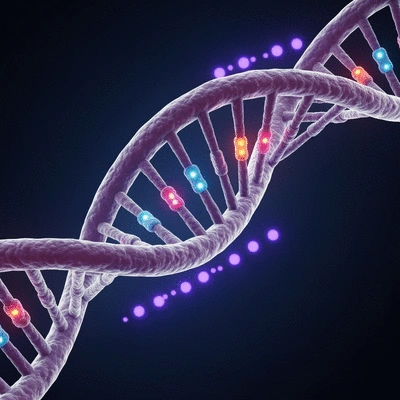Understanding Monogenic Diabetes Basics

What if the key to understanding diabetes lies in our genes? Monogenic diabetes, a rare yet significant form, challenges our conventional views on this complex condition. Let’s explore the essential insights that can reshape how we approach diabetes care.
What You Will Learn
- Monogenic diabetes is caused by mutations in a single gene, differing from the more common types of diabetes.
- It typically presents at a young age, often during infancy or early adulthood, leading to unique management challenges.
- Recognizing the variable symptoms among family members can help improve diagnostic accuracy and treatment strategies.
- Genetic understanding allows for personalized treatment plans that can significantly enhance patient outcomes.
- Advancements in genetic testing are paving the way for faster diagnoses and targeted therapies for monogenic diabetes.
Monogenic Diabetes: Key Differences from Other Diabetes Types
This visual highlights the fundamental distinctions between Monogenic Diabetes and the more common Type 1 and Type 2 diabetes, focusing on their genetic basis, insulin impact, and treatment response.
Genetic Basis
Monogenic Diabetes: Caused by mutations in a single specific gene.
Type 1: Autoimmune destruction of insulin-producing cells.
Type 2: Primarily lifestyle-related with genetic predispositions.
Insulin Production & Function
Monogenic Diabetes: Impaired from onset due to genetic mutations affecting insulin synthesis or release.
Type 1: No insulin produced.
Type 2: Insulin resistance, often followed by decreased production.
Treatment Responses
Monogenic Diabetes: May respond differently to standard medications, often requiring specific genetic-based therapies.
Type 1: Insulin therapy is mandatory.
Type 2: Lifestyle changes, oral medications, and sometimes insulin.
Diagnosis & Family History
Monogenic Diabetes: Early onset, strong family history, genetic screening often crucial.
Type 1: Often sudden onset, can appear without strong family history.
Type 2: Later onset, often linked to family history and lifestyle factors.
Understanding Monogenic Diabetes: A Genetic Overview
Monogenic diabetes is a rare but significant form of diabetes that arises from mutations in a single gene. Unlike the more common types, such as Type 1 and Type 2 diabetes, monogenic diabetes is often inherited in a straightforward manner, meaning it can run in families. Understanding this condition is crucial, as it impacts how we approach diagnosis and treatment. So, let’s dive into what sets monogenic diabetes apart!

One key aspect to note is that monogenic diabetes typically presents in a younger population, often during infancy or early adulthood. Patients with this condition may show a range of symptoms that differ from those seen in other diabetes types, and these can be less predictable. Recognizing these unique characteristics enables better management and tailored treatment.
Defining Monogenic Diabetes and Its Unique Characteristics
Monogenic diabetes is characterized by its genetic basis, stemming from mutations that directly affect insulin production or function. Here are some defining features:
- Single-Gene Mutations: The condition is caused by mutations in specific genes which can lead to diabetes, as explored in detail by academic research on monogenic diabetes.
- Early Onset: Many individuals are diagnosed at a young age, often due to genetic predispositions.
- Variable Presentation: Symptoms and severity can vary widely, even among family members.
- Potential for Misdiagnosis: Because of its similarity to Type 1 and Type 2 diabetes, it is often misdiagnosed.
These unique characteristics highlight the need for awareness among healthcare providers. By understanding monogenic diabetes better, we can improve diagnostic accuracy and treatment approaches.
How Monogenic Diabetes Differs from Other Diabetes Types
Understanding the distinctions between monogenic diabetes and other diabetes types is crucial for effective management. Here are some of the key differences:
- Genetic Basis: Monogenic diabetes is purely genetic, while Type 1 is autoimmune and Type 2 is primarily lifestyle-related.
- Insulin Production: In monogenic cases, insulin production can be impaired from the onset due to genetic mutations.
- Treatment Responses: Patients with monogenic diabetes may respond differently to standard diabetes medications.
- Family History: It often runs in families, which can guide diagnosis and treatment strategies.
These differences underscore the importance of genetic screening in individuals with a family history of diabetes. Recognizing monogenic diabetes not only leads to more accurate diagnoses but also opens the door to personalized treatment strategies.
Exploring the Types of Monogenic Diabetes and Their Genetic Basis
The landscape of monogenic diabetes is quite diverse, with several distinct types, each linked to specific genetic mutations. Let’s explore the key varieties!
Understanding these types is essential as it influences how we manage and treat each condition, paving the way for better outcomes.
Pro Tip
Did you know? Understanding the specific genetic mutation responsible for monogenic diabetes can significantly enhance treatment outcomes. If you or a family member are diagnosed, consider genetic testing to identify the exact type of monogenic diabetes. This knowledge can lead to more effective, personalized treatment options and better management of the condition.
Summarizing Key Insights on Monogenic Diabetes
Understanding monogenic diabetes is crucial for effective diabetes care. This unique type of diabetes, resulting from specific genetic mutations, can significantly influence how individuals manage their condition. Genetic understanding plays a pivotal role in tailoring treatment and improving patient outcomes.
By grasping the genetic basis of monogenic diabetes, healthcare providers can offer personalized care that addresses individual needs. This not only enhances management strategies but also empowers patients with knowledge about their condition and its implications.
Reviewing the Importance of Genetic Understanding in Diabetes Care
Genetic insights can transform diabetes management. Here are a few reasons why this understanding is so critical:
- Personalized Treatment: Identifying specific genetic mutations allows for targeted therapies, optimizing treatment effectiveness.
- Early Diagnosis: Recognizing monogenic diabetes can lead to earlier interventions, improving long-term health outcomes.
- Family Planning: Genetic counseling based on inheritance patterns helps families understand their risks.
As I delve deeper into diabetes education through my work at What Is Diabetes, I recognize that informed patients are more likely to make decisions that enhance their overall health. Understanding the genetic components of diabetes can inspire confidence and enable better management practices.
Looking Ahead: Advances in Genetic Testing and Treatment Options
The field of genetic testing is rapidly evolving. Advances in technology are making it easier to identify monogenic diabetes and tailor treatments accordingly. Here are some of the promising developments:
- Next-Generation Sequencing: This technique significantly speeds up diagnosis by analyzing multiple genes simultaneously.
- Improved Accessibility: As testing becomes more affordable and widespread, more patients can benefit from genetic insights.
- Novel Therapeutics: Ongoing research aims to develop treatments that specifically target genetic defects, as highlighted by studies on advancements in monogenic diabetes research.

At What Is Diabetes, we are dedicated to keeping our community informed about these advancements. As new research emerges, we will continue to provide evidence-based insights that can guide individuals in managing their diabetes effectively.
Engaging with the Community: Support and Resources for Patients
Resources for Genetic Counseling and Family Support
Connecting with professionals who understand the complexities of monogenic diabetes is essential. Here’s where you can find support:
- Genetic Counselors: These experts can help families understand genetic risks and navigate testing options.
- Diabetes Clinics: Specialized clinics often provide comprehensive care and resources tailored for individuals with monogenic diabetes.
- Online Forums: Engaging with communities online can offer emotional support and shared experiences.
As someone deeply passionate about diabetes education, I encourage individuals to seek out these resources. They can make a significant difference in managing this unique condition.
Encouraging Patient Stories and Experiences in Living with Monogenic Diabetes
Hearing from others who share your journey can be incredibly inspiring. Here’s how you can connect with different narratives:
- Patient Advocacy Groups: Many organizations promote awareness and provide platforms for sharing personal stories.
- Social Media: Platforms like Facebook and Instagram are great for finding support groups and engaging with others.
- Community Events: Attending local meetups or conferences can foster connections with fellow patients and caregivers.
Connecting with others not only provides support but also highlights the importance of community in managing health challenges. At What Is Diabetes, we celebrate these stories and aim to amplify voices that can inspire change and resilience.
Connecting with Patient Advocacy Groups and Community Resources
There are numerous organizations dedicated to supporting individuals with monogenic diabetes. Here are a few to consider:
- Monogenic Diabetes Study Group: Focuses on research and education specific to monogenic diabetes.
- Diabetes UK: Offers resources, support networks, and advocacy for all diabetes types, including monogenic.
- Local Diabetes Associations: Many regions have associations that provide tailored resources and community support, often discussing the clinical characteristics of monogenic diabetes.
In my experience, tapping into these resources can significantly enhance your understanding and management of the condition. Remember, you're not alone in your journey; there’s a whole community ready to support you!
Frequently Asked Questions About Monogenic Diabetes
Q1: What is monogenic diabetes?
Monogenic diabetes is a rare form of diabetes caused by a mutation in a single gene, distinguishing it from Type 1 and Type 2 diabetes, which have more complex genetic and environmental causes.
Q2: How is monogenic diabetes diagnosed?
Diagnosis often involves genetic testing to identify the specific gene mutation responsible. Early onset, a strong family history of diabetes, and symptoms that don't fit typical Type 1 or Type 2 profiles can all suggest monogenic diabetes.
Q3: Is monogenic diabetes inherited?
Yes, monogenic diabetes is typically inherited in a straightforward manner. If one parent carries the mutated gene, there's a significant chance their children will inherit the condition.
Q4: How does treatment for monogenic diabetes differ from other types?
Treatment for monogenic diabetes is often highly personalized, depending on the specific gene mutation. Some types may respond well to oral medications, while others might require insulin. Genetic testing helps guide the most effective treatment strategy.
Q5: What are the benefits of genetic testing for monogenic diabetes?
Genetic testing provides an accurate diagnosis, allows for tailored treatment plans, helps predict disease progression, and offers valuable information for family planning and genetic counseling.
Recap of Key Points
Here is a quick recap of the important points discussed in the article:
- Genetic Basis: Monogenic diabetes arises from mutations in a single gene, distinguishing it from Type 1 and Type 2 diabetes.
- Early Onset: This condition is typically diagnosed in younger populations, often during infancy or early adulthood.
- Variable Presentation: Symptoms can vary widely among individuals, even within the same family, necessitating personalized treatment approaches.
- Importance of Genetic Screening: Genetic testing is crucial for identifying monogenic diabetes, enabling early diagnosis and tailored treatment strategies.
- Access to Resources: Engaging with genetic counselors and diabetes clinics can provide essential support for patients and families.









